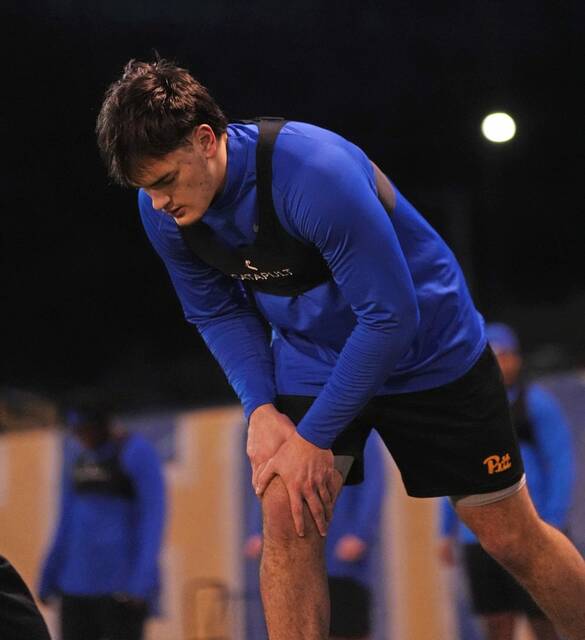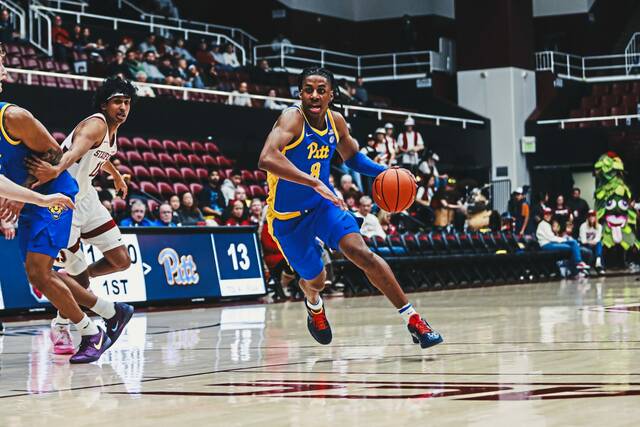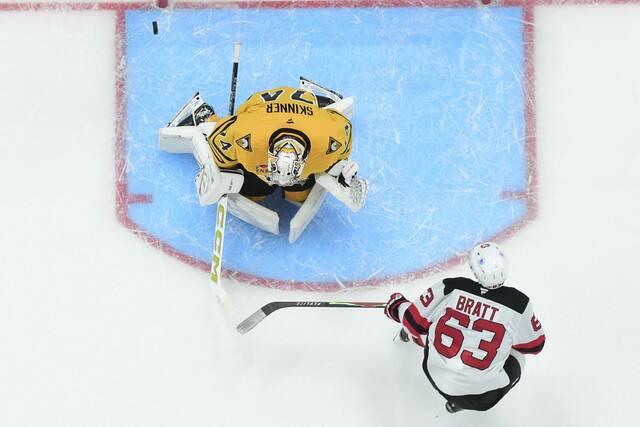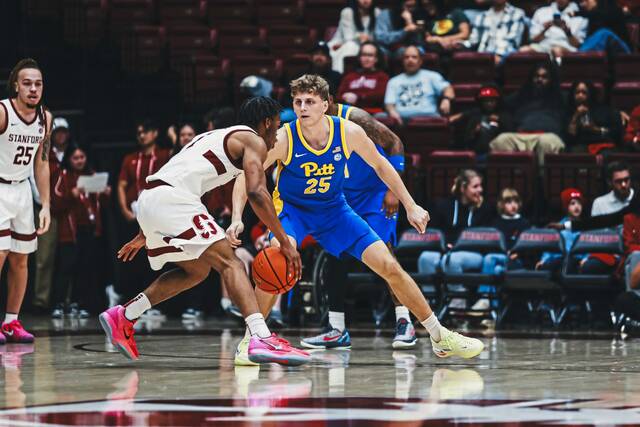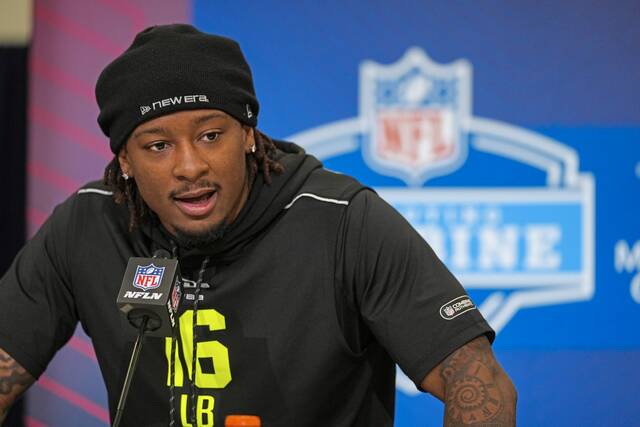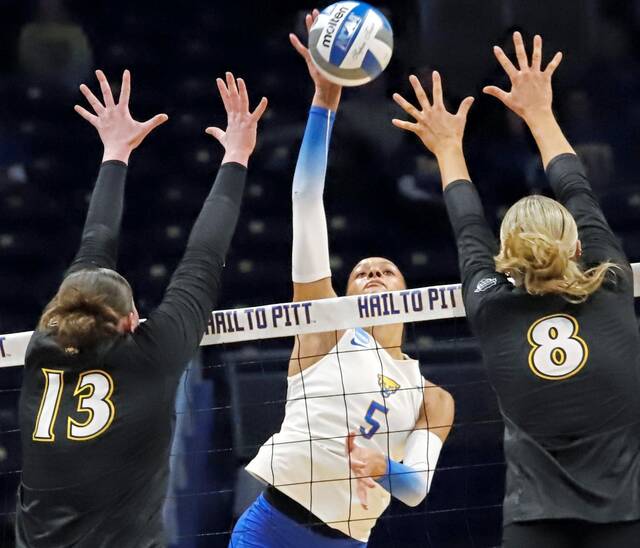Kenny Pickett’s day starts early and ends late.
He’s the quarterback of a Pitt team that will confront its third Top 25 opponent this season when No. 15 Central Florida comes to Heinz Field on Saturday.
There’s much work to do.
Pickett’s day begins with an early wake-up call and practice for a couple of hours until noon. There, he repeatedly throws deep balls and quick sideline out routes, one after another, trying to perfect timing with his receivers.
Then, it’s lunch, class from 2-6:30 p.m., study (he’s a junior marketing major), dinner and back to the South Side practice facility Tuesdays and Wednesdays for the week’s most important moments: hanging on every syllable uttered by offensive coordinator Mark Whipple, who’s spent four decades trying to make defenses look foolish.
“I try to spend a lot of time in the facility and being around him and just listening to him talk,” Pickett said. “Picking his brain on what he sees and how he wants to attack the defense so, when I go out there, I have a pretty good idea what I’m doing.”
When does he finally go back home to sleep?
“Whenever I get done,” Pickett said.
Whipple has been coaching quarterbacks and wide receivers since 1980, 18 years before Pickett was born. He’s been with eight universities — Brown and UMass twice — and four professional teams, including three years as Bill Cowher’s last quarterbacks coach with the Pittsburgh Steelers.
He also worked with George Allen and Andy Reid, and for two years (2009-10), he was Randy Shannon’s offensive coordinator at Miami.
On Saturday, he’ll match X’s and O’s with Shannon, who is Central Florida’s defensive coordinator.
The relationship between Whipple, 62, and Pickett, 21, took root only eight months ago when the coach replaced Shawn Watson as Pitt’s play-caller and quarterbacks coach.
He likes the pace of Pickett’s growth and especially the recent results: consecutive 300-yard games (321, 372) for the first time in his career. But in Whipple’s eyes, it’s more than throws that make a quarterback.
“What I like was when he came to the sideline (to get the next play), and (when) you talk about eyes and vision and what do you see, he’s answering those things a lot better than even in practice,” Whipple said.
“We’re getting on a much better page. We got a ways to go, but there’s no question there’s improvement from Day 1 and from the first game.”
Pickett speaks face-to-face with Whipple before every play, coming to the sideline to get the call. Pickett said he prefers that to wearing a wrist band with numbers on it, and it gives him more time at the line of scrimmage.
“We don’t have a full-blown conversation,” Pickett said, noting both men express themselves quickly. “I can tell him something I just saw, and he’ll tell me, vice versa.
“It’s almost like in the NFL (where) they have it in the helmet. You hear the play before everybody else. As I’m going back to the huddle, I have it in my mind my progressions and what I have to do in the play.
“I like it a lot better than doing the whole number system with the wrist band. Last year, it was tough coming to the line of scrimmage with 10 seconds left, trying to read the defense. Now, we’re coming with 20 seconds left, and I have more time to dissect what we’re getting.”
When he was asked if trotting back and forth from sideline to huddle tires him out, he admitted to being “out of breath” during the 13-play field-goal drive Saturday at Penn State.
“That was the only time,” he said. “I took five seconds, and I was ready to go again.”
Whipple said he has passed the play directly to the quarterback in most of his jobs, but he also likes it for security reasons.
“Unless they get somebody to read my lips, they can’t steal signals,” he said. “There’s not that communication problem. I did it that way in Miami, and we did it all right.”
There’s also the opportunity for either coach or pupil to add a quick suggestion, an impossibility with an inanimate wrist band.
“He may see something and say, ‘Stay with this,’ ” Whipple said.
But the game still comes down to how well Pickett and his teammates execute plays. Pat Narduzzi said, “Plays don’t make plays. Players make plays.”
Pickett completed 35 of 51 passes against Penn State, but that’s not good enough when you score 10 points and lose.
“There are certain throws I wish I had back, certain plays I wish we hit,” Pickett said. “here were mistakes made that cost us on multiple plays. If we hit one of those, it would have been a different ending.”
Get the latest news about Pitt football and all things Panthers athletics.



